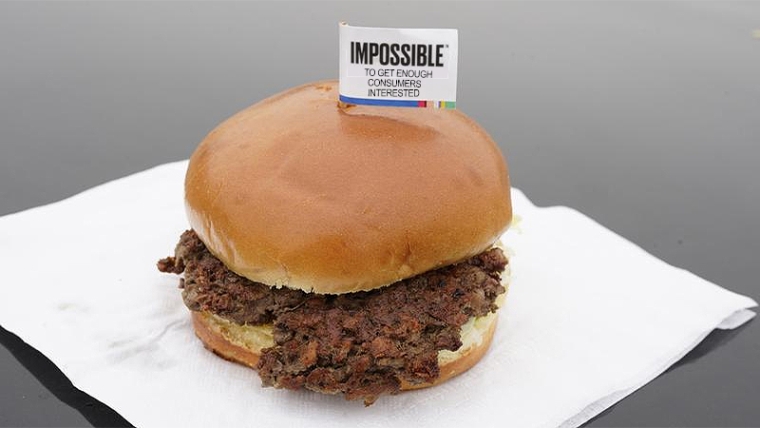
This content is supplied by Rabobank.
In the next few years, the global consumer food industry will see a shift in innovation strategies with fewer total “disruptive” innovations as large food companies – including those here in New Zealand – refocus their attention on incremental changes, according to a new report by agribusiness banking specialist Rabobank.
In the new report, Disruptive Food Products Prove To be More Hype than Bite, Rabobank says the consumer food industry has witnessed an explosion of disruptive innovation for food products over the past decade – with examples including plant-based meats, insect protein bars, synthetic fat replacers, and precision fermented milk proteins – but that this disruption has already reached its peak.
“Weaker demand for disruptive innovations, economic uncertainty, and the higher interest rate environment have exacted their toll on many disruptive products coming to market,” Rabobank senior consumer food analyst Thomas Bailey said.
“The same group of investors that drove the 288 per cent increase in deals from 2010 to 2022 appears to have put the brakes on deals so far in 2023.”
“Moving forward, disruptive innovations will likely face more rigorous evaluation, resulting in fewer but potentially more successful disruptive products that have endured more intensive vetting.”
Incremental change in food innovation is back
According to the report, consumer food companies will likely focus more on commercially viable incremental innovation, prioritizing improving taste, convenience, and health rather than being caught up in the hype of disruption.
Mr Bailey said incremental innovation – creating new value through minor product or service adjustments – is considered safer.
“In food, incremental innovation looks like line extensions, packaging changes, new flavours, and functionality twists,” he said.
“The main benefit of incremental innovation is that it offers more immediate benefits: supply chain simplicity, sustainability, cost reduction, and generally keeping customers happy and interested. Furthermore, it is better suited to keeping prices low for consumers in an inflationary environment like the one we have today.”
The report says some big names in the food space have recently announced moves to incremental innovation.
“American food maker Chobani has spent years expanding from Greek yoghurt into coffee, dips, creamer and oat milk but have recently announced they will focus on innovating in their existing core product range which means incremental innovations in flavours, packaging formats and convenience.”, Mr Bailey said.
“We’ve also seen McDonalds announce that it will shift its innovation strategy to one that is incremental, for example McDonalds will be revamping older products with a twist, such as the limited Chicken Big Mac, and optimising existing traditional products for taste.”
Fewer, but better, disruptive innovations moving forward
The report says it is safe to assume that those who continue to invest in disruptive innovations will need to exercise even more prudence when it comes to food products.
“They will need to take more steps to ensure product alignment with consumers in terms of taste, health, and convenience. Investors who choose to continue to seek out disruptive innovations will be a good source of insight for large food companies that are currently shifting to incremental innovation but need to keep an eye on the longer-term horizon”, Mr Bailey said.
“While disruptive innovations underperformed against our expectations this time around, the quality of the disruptive food products will be higher in the future and may catch us off guard.”
6 Comments
I don't know why everyones getting their knickers in a knot over plant based foods , when chicken and pork are far bigger competitors. Which we import.
And we’ve been able to buy plant based (or something based) substitutes for years anyway - I think that’s what you’d call the beef ‘flavoured’ sausages that we dole out at sausage sizzles 😂
If you want to be an Omnivore, eat meat straight from the animal. If you want to be a Vegetarian/Vegan eat vegetables straight from the ground. What you don't need to eat is highly processed vegetable compounds that have been refined beyond recognition and manipulated into something resembling meat through the addition of dozens of chemicals. Highly processed food is extremely bad for you - that includes all these new fake foods.
Pea proteins are now linked with causing heart issues in dogs, as pea protein has replaced animal protein in pet foods because its cheaper to produce. Nobody has done any testing on what long term consumption of pea protein (main ingredient in Beyond Burgers) does to humans.
Turns out my wife is allergic to peas, fresh ok, nothing else. She always had trouble using Panadol, turns out lots of medicines use pea protein as a fuller. And in fact pea allergy is really common. Who knew
The only reason the burger chains started selling 'meat free' burgers was to expand their consumer audience. Most people who eat burgers however will eat the real thing so it may well be that in a few years the availability of meat free will be back to the extreme niche it was.
And the vegan movement hijacked the environmental sustainability debate to encourage meat free eating - this will also rebalance as the truth comes to the surface and people begin to appreciate that healthy eating should align with a healthy planet, which means eating meat and vege in balance.
We visited a permaculturist. Upon inquiring which trees were proving useful to attracting a native bird population. the answer was 'I am a permaculturist, not a conservationist, this is not my focus'. Groups all have a different focus of what is good, and green. Digress. Good to see unprocessed food prevail. Perhaps stuff could now reduce its farm 'news' articles.
We welcome your comments below. If you are not already registered, please register to comment
Remember we welcome robust, respectful and insightful debate. We don't welcome abusive or defamatory comments and will de-register those repeatedly making such comments. Our current comment policy is here.